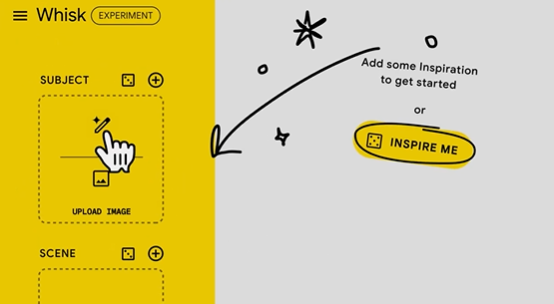The year 2025 is yet to come, but the AI battle in Silicon Valley has already ignited. At the annual strategy meeting, Google CEO Sundar Pichai issued a powerful call to all employees: 2025 will be a crucial year! He emphasized that Google must move forward at an unprecedented pace, as this is not just a technological race but a disruptive moment that will shape the future of AI.
This statement is undoubtedly a response to the fierce competition between Google and OpenAI. Since the launch of ChatGPT, Google's leading position in the AI field has faced unprecedented challenges. Over the past two years, OpenAI's brilliance has overshadowed nearly all of Google's efforts. However, in December 2023, Google made a strong comeback with a series of heavyweight products like Gemini 2.0 Flash and Veo 2, showcasing the potential to surpass leading models. The turning point in this AI race seems to have arrived.

During the meeting, Pichai presented a comparison chart of large models, showing that Gemini 1.5 significantly outperforms competitors, including OpenAI. When asked about ChatGPT becoming synonymous with AI, Pichai stated that Google doesn't always need to be the first, but it must be the best among similar products. The significance of 2025 lies in Google's need to solidify its position as a leader in the AI space. Logan Kilpatrick, head of Google Developer Relations, has also hinted multiple times that Google will fully ramp up efforts next year, with the complete version of Gemini 2.0 expected to launch in January. Google DeepMind CEO Demis Hassabis remarked that this is just the appetizer, with the main show set to start in 2025.
Analysts predict that Google may offer more powerful models for free next year and release competitive models that directly challenge GPT-3. To secure a high ground in this AI revolution, Google is going all out.
Gemini: Google's Next Billion-Dollar Bet
For Google, a more severe challenge comes from OpenAI's encroachment on its search business. Although Google still dominates the search market, generative AI is providing new ways for people to access online information. OpenAI is increasingly being seen as synonymous with AI, similar to Google's status in the search domain.
Google is under immense pressure and is investing heavily in developing Gemini to consolidate its leading advantage in AI. The Gemini application allows users to access various tools, including chatbots. Pichai stressed that "building large new businesses" is a top priority. Google currently has 15 applications with over 500 million users, and executives generally believe Gemini will be the next one. Although Pichai believes Gemini applications have "strong momentum," he also acknowledges that there is much work to do in 2025 to close the gap and establish leadership. He added, "The biggest focus next year will be expanding Gemini for consumers."
Additionally, Google is facing multiple legal lawsuits in the U.S., including allegations of monopolizing search and illegally dominating online advertising technology. British regulators have also preliminarily found that Google's advertising practices affect the country's competitiveness. In response, Pichai stated that these are challenges brought about by Google's scale and success, and they must ensure they do not get distracted.
Google: Can the "Latecomer" Surpass?
Data from OpenRouter AI shows that Google's Gemini market share among developers surged from about 5% in September to over 50%, leading the pack and driving a 14% increase in stock price. This comes two years after OpenAI released ChatGPT.
As early as 2017, Sam Altman considered Google DeepMind to be the most powerful competitor in the AGI race. However, the once-recognized AI giant Google has appeared somewhat "overwhelmed" since the release of ChatGPT. Google not only faced frequent missteps in product launches but also saw its stock price plummet at times.
It is perplexing that Google, with the world's best hardware, the most training data, and top talent, has fallen behind OpenAI in the AI race, even struggling to compete with startups like Anthropic. Some analysts believe that Google's "large ship is hard to turn" and that it requires more time for compliance checks due to safety considerations. In early 2023, Google hastily released Bard, which caused its stock price to crash due to incorrect answers. Additionally, as a large corporation, Google faces more legal restrictions, such as issues related to user data copyrights.
Despite this, Google is rising again with a strong presence. Its future goal is to continue leading the development of "intelligent agents" and integrate them into browsers and mobile devices to automate user tasks.
Google's Major AI Events in 2024
2024 will be a year of "action" for Google AI. Many well-known products will be launched this year, such as various versions of Gemini, NotebookLM, and AI features for Pixel phones.
Google claims there will be "60 significant AI releases" in 2024, including:
Gemini Model: Google launched its first native multimodal model, Gemini 1.0, in December last year, followed by versions like Gemini 1.5 and Gemini 2.0 Flash. These models have shown significant improvements in multimodal processing capabilities, context windows, and reasoning performance. Gemini 2.0 integrates multimodal and native tool usage capabilities, marking the official entry of large models into the "intelligent agent" era.
NotebookLM: This AI-driven research and writing assistant, after switching its underlying model to Gemini 1.5 Pro, can better help users understand and explore complex materials. Its major feature, Audio Overview, can generate audio discussions between two AI hosts, assisting users in summarizing and discussing materials in depth.
AlphaFold3: Google's AlphaFold3 has improved its performance in predicting interactions between proteins and other types of molecules by at least 50%, bringing more possibilities to the field of biological sciences.
Pixel Mobile: Google has provided a range of AI features based on Gemini and Imagen 2 for the new Galaxy S24 series and Pixel 9 phones, including summarization capabilities, generative photo editing, and travel planning, aiming to offer users a smarter and more convenient experience through AI.
Google is going all out and looks forward to bringing more surprises to users next year.








